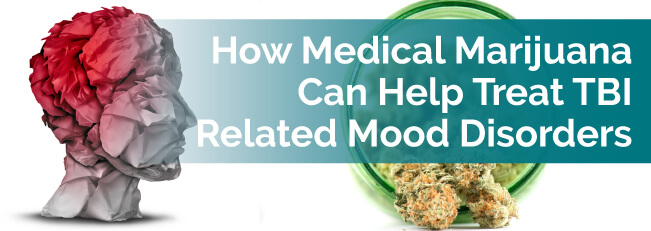
A traumatic brain injury, or TBI, is damage that occurs to the brain because of some sort of accident or event. It can happen to anyone, anywhere, at any age, although the very young and elderly are more at risk. Most TBIs are mild cases that can be treated with rest and over-the-counter pain medicines. However, moderate and severe cases happen regularly.
Most people think of the immediate repercussions of brain injuries. If the damage is severe enough, it can result in surgery, loss of certain brain functions and even death. Once the initial injury is treated, there can be long-term damage, as well. Some people have difficulties with physical or cognitive functions.
Something many people don’t think about is the toll that TBI has on emotional and psychological health. It’s known to cause changes in mood and, in some cases, severe mental disorders. Although these symptoms may not be as obvious as other more apparent risks associated with TBI, they shouldn’t be ignored — there are treatment options available.
Medical marijuana may not seem like an obvious treatment option for traumatic brain injuries, but it actually has many benefits for the symptoms associated with the damage — one being that it can treat many of the mood disorders associated with TBI without resorting to mainstream medications, which have several adverse side effects.
The initial cause of traumatic brain injury is usually apparent. Some outside force has caused a head injury which impacted your brain. This could include:
After emergency medical services have treated the initial cause, TBI can still impact a person’s life. Any injury to the brain, even if it’s mild, can have severe repercussions on how it functions. Mood changes can occur right after the event or several months after, but they’re a common side effect of TBI.
The main cause of mood disorders in individuals with TBI is damage to portions of the brain that control emotion or behavior. The most disconcerting part of this symptom is that there is no apparent trigger for emotional outbursts. The person will seem calm one moment, then they’ll suddenly appear sad, angry or hysterical.
TBI can also have a lasting effect on the patient’s emotional well-being. When they begin to understand the lasting ramifications or undergo intense therapy to recover, this can lead to feelings of anxiety or depression.
Family members and friends tend to be confused by TBI-related mood disorders, especially if it has impacted the personality of their loved one. But understanding is essential to treatment. Some common mood disorders caused by traumatic brain injuries include:
As we begin to understand cannabis and how it interacts with our body’s endocannabinoid system, we see its positive impact on many different bodily functions. Medical marijuana binds to cannabinoid receptors throughout our body, influencing both the body and the mind.
Research and anecdotal evidence shows cannabis treatments help many different psychological disorders, depending on the type of strain used. This is great news for patients suffering from mood disorders caused by traumatic brain injuries. Although marijuana can’t heal the brain damage, it can help bring balance to the chemicals causing the mood disorders.
But how can one plant affect different mood disorders with the same effectiveness? That’s where choosing the right strain comes into play. The two main types of cannabis strains are:
If you have a mood disorder caused by a traumatic brain injury, your doctor will most likely prescribe more common medications or some sort of therapy. Medical marijuana can be used in combination with any of these forms of treatment.
For more information about how cannabis could help you, speak to your doctor today. Our advice shouldn’t replace theirs, and a licensed physician could help you with the process of getting your medical marijuana license in your state. For more information, contact a local marijuana-certified doctor or medical marijuana dispensary today.
For more information about how cannabis can be used to treat Traumatic Brain Injury, check out our resources: